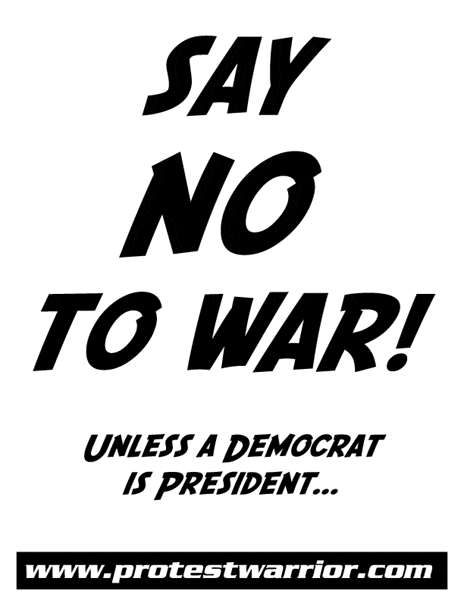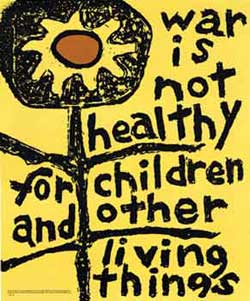
Posted on 08/27/2013 11:50:25 AM PDT by nickcarraway
The generation that came of age during World War II famously — and, in time, tragically — came to apply the formative lessons to every foreign-policy event that followed it. The generation that came of age during the Vietnam War, and then, more recently, the Iraq War, was imprinted with the opposite lessons. I’m not immune: My formative experience in college was the Gulf War and, soon after that, the eventual, successful interventions in the Balkans. (I have a cousin who is married to a Kosovar, whose husband was murdered by Serbian militants, and who was saved by the United States military.)
The merits of intervening in Syria strike me as both a closer call and a lower-stakes matter than what we think of as “major wars.” The apparently forthcoming operation has much more modest ends than the intervention in Libya, which I supported and that succeeded in its aim. We will not be toppling a brutal regime or preventing an imminent massacre. The purpose of air strikes is to impose a cost on regimes that deploy chemical weapons against civilians. Attacking the Syrian regime won’t stop all future massacres of civilians, or even all chemical attacks on civilians, but it does strike, on balance, as better than doing nothing at all.
I’m continually struck by the ideological cleavage between myself and the Iraq War–vintage smart center-left writers, who generally agree with me on domestic policy but sharply diverge with me on foreign policy. Matthew Yglesias, for instance, regularly makes arguments against any kind of military intervention that impress other Iraq War–era neoliberals but strike me as insanely reductive. The arguments Yglesias poses today against a military strike against Syria eerily echo the arguments conservatives and libertarians make against any kind of domestic government intervention.
This piece of his argument, making the case that the Libya intervention failed, is really striking: It's also worth noting that the successful military intervention in Libya has hardly brought an end to violent conflict or political repression there. Whether it's the assassination of a few dozen political activists here or the displacement of tens of thousands of civilians from their homes by rebel forces, it turns out that the new Powers That Be in Libya have their own range of bad behaviors. Bombs are just a bit of a crude instrument with which to shape the domestic politics of countries featuring significant social cleavages, a lack of trust, and a recent history of resolving disputes with military force.
The argument for intervening in Libya was not that doing so would turn the country into a peaceful, Westernized democracy moving rapidly up the OECD rankings. It was that it would prevent an immediate, enormous massacre of civilians. Libya remains an ugly place; it would have been so regardless of whether NATO intervened. But the narrow, humanitarian goal that drove the U.S. to act was unambiguously accomplished without the larger dangers of mission creep that foes warned against. It’s telling that, rather than arguing that the overall costs exceeded the benefits, opponents are resorting to listing any bad things that have happened since.
An even worse argument is that, if we want to prevent the deaths of people in Third World countries, we should use humanitarian aid for things like anti-malarial nets rather than military force against people who are massacring them.
Anti-malarial nets have taken on a strange place in liberal anti-interventionist rhetoric. They appear on the scene, as they did at the outset of the Libya operation, when somebody is proposing a humanitarian military intervention. It’s not unlike conservative interest in health-care reform, which exists only when it can be used to oppose a Democratic health-care-reform plan that stands a chance of passing Congress.
Yglesias even admits he’s bringing it up today because the proposed Syria intervention is a “good news hook.” The two don’t have anything to do with each other, of course. Intervening or not intervening in Syria won’t change the dynamics that prevent an increase in anti-malarial aid. It’s not a hook at all. It’s just dressing for his closing argument: “Whatever you think about killing some Syrians this summer, please consider throwing a few dollars in the direction of a cost-effective charity of some kind.” I don’t like killing Syrians. And a lot of Syrians are getting killed. I don’t see any plausible way to stop that from happening. I do think that killing some of the Syrians who are soldiers wantonly killing civilians will probably lead to a net decrease in killing. As I said, it is not an easy call. But I continue to be amazed that some of my younger liberal friends find it so easy to dismiss any weighing of pros and cons by venturing arguments structurally identical to ones that, in a domestic context, they recognize as absurd.
And cheese isn’t galoshes.
War under Democrat Presidents = Good
War under Republican Presidents = Bad
communist foreign policy for American communists:
1) War is bad whenever a republican is president.
2) All war is righteous and acceptable if any democrat is president.
3) If the war goes badly, blame it on the republicans, Christians and Jews.
Your translation sums it up nicely!
In commentary from our allies, I hear a lot of we need, we should, we cannot let etc. What I don’t see is any other ships and planes there aside from those of the US.
Bush: BAD WAR!
Obama: GOOD WAR!
Chait: BRAIN-DEAD LIBERAL!

“The argument for intervening in Libya was not that doing so would turn the country into a peaceful, Westernized democracy moving rapidly up the OECD rankings. It was that it would prevent an immediate, enormous massacre of civilians.”
And now that the intervention was so successful, let’s see the evidence that the Libyan regime was planning a civilian massacre.

Unless a Democrat is in the White Hut..........
... and Iraq wasn’t Vietnam.
Kostards are certainly not all about war, yet.
“We will not be toppling a brutal regime or preventing an imminent massacre. The purpose of air strikes is to impose a cost on regimes that deploy chemical weapons against civilians.”
Ah-huh. And launching missile strikes against Moscow’s oldest and closest ally in the region couldn’t possibly have any consequences? And it won’t have any repercussions elsewhere in the Islamic world?
Look, if Assad really did use chemical weapons on his own people, he is a war criminal. But I think it in incredibly naive to propose any intervention without recognizing the very real possibility that the fallout could be far greater than any of us expect.
Putting the chemical weapons Assad has in the hands of various terrorist/freedom fighters couldn’t possibly have negative consequences.
First, what’s this neocon crapola??
Second, since a liberal denied it isn’t the same it must be the same.
More like:
War that does not serve US interests and probably helps our enemy = good war
War that serves US interests = bad war
You are correct, one must also look at the third, fourth and other effects that will occur as a result. The crystal ball can get pretty cloudy and there will be lots of unwelcome surprises.
Disclaimer: Opinions posted on Free Republic are those of the individual posters and do not necessarily represent the opinion of Free Republic or its management. All materials posted herein are protected by copyright law and the exemption for fair use of copyrighted works.